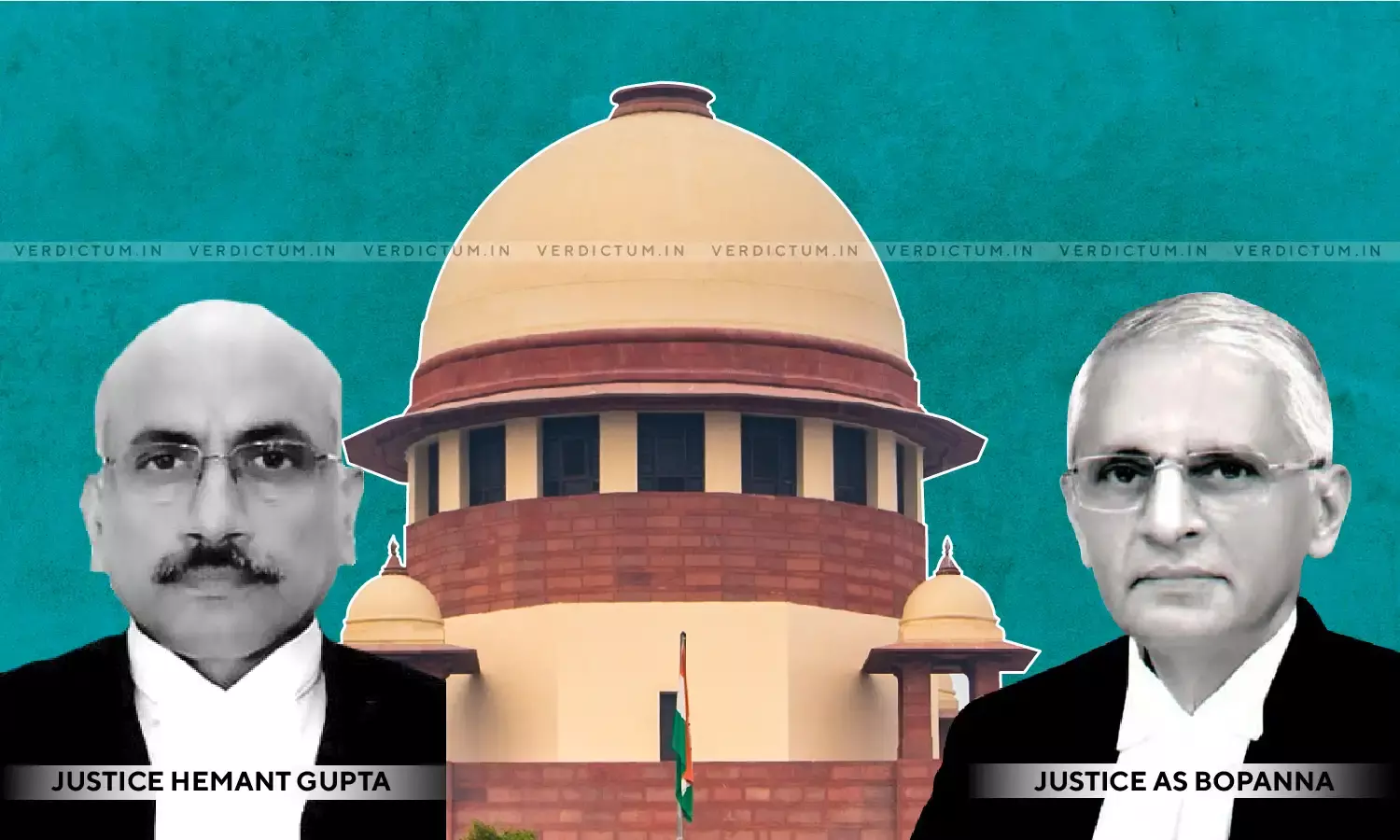A Purchaser From Mortgagor Is Entitled To Redeem Mortgatged Property On Payment Of Mortgage Amount- Right Of Redemption Is Subsidiary To Right Of Ownership: Supreme Court

A two-judge Bench of Justice Hemant Gupta and Justice A.S. Bopanna observed that under Section 60 of the Transfer of Property Act, the right of redemption is a right that is subsidiary to the right of ownership and is a statutory right. The Bench further observed, "Such right is not over and above the right of ownership purchased by the plaintiff."
In the instant case, the mortgagors had sold the mortgaged land to the Plaintiff. Plaintiff, therefore, had to step into the shoes of the mortgagor on account of the sale transaction. The mortgagee filed a suit for recovery where a final decree was passed due to non-payment of amount pursuant to a preliminary decree based on compromise, which led to the foreclosure of the right of the mortgagor to redeem the property. Plaintiff then filed a suit against the original mortgagors and the mortgagee seeking redemption of the mortgaged property. This suit, however, was dismissed by the Trial Court on the ground of res judicata since the Plaintiff had applied for a stay of execution of the decree in the suit for foreclosure. It was also held that the Plaintiff had not purchased the equity of redemption.
The First Appellate Court allowed the appeal and held that since the Plaintiff has purchased the land before the institution of the suit, therefore, the mortgagee ought to have made him a party in view of the provisions of Sections 59A and 91 of Transfer of Property Act. However, the order was reversed by the High Court of Bombay and held that the Plaintiff's suit for redemption was not maintainable.
In the appeal before the Supreme Court, three issues were raised:
- "Whether the Plaintiff was a necessary party in a suit for foreclosure filed by the mortgagee after the purchase?"
The Court noted that Plaintiff rightly claimed that he was required to be impleaded, as he was a necessary party in a suit for foreclosure filed by the mortgagee after the purchase of a part of the mortgaged land.
"Still further, in terms of Section 91 of the Act, the plaintiff having stepped into the shoes of the mortgagor in respect of land purchased by him has a right to redeem the land mortgaged", observed the Court.
In this regard, the Court further held, "The equity of redemption is a right which is subsidiary to the right of ownership. Such right is not over and above the right of ownership purchased by the plaintiff. The expression equity of redemption is a convenient maxim but an owner, who has stepped into the shoes of the mortgagor, after the purchase from the mortgagor but before filing a suit for foreclosure is entitled to redeem the property in terms of Section 60 of the Act."
- "Whether the decree obtained in a suit for foreclosure operates as res judicata and the right of redemption stands extinguished by the decree of the Court?"
The High Court, in the appeal, had held that the decree for foreclosure will operate as res judicata on account of the fact that the appellant applied for a stay of the execution proceedings.
However, the Supreme Court held that the findings of the High Court were not tenable because the appellant was not impleaded as a party, though mandated under Section 91 of the Act and Order XXXIV Rule 1 of the Code of Civil Procedure
"The only effect of filing of an application for stay of the execution would be that the appellant can be said to be aware of the fact that there is a decree for foreclosure passed against him which has not been stayed by virtue of the order of the Court. There is no determination of the claim as is contemplated in terms of Order XXI Rule 97 or Rule 99 of the Code having force of decree. The declining of stay of execution will not operate as res judicata only because Section 11 Explanation VII of the Code is applicable to the execution as well.", observed the Court.
- "Whether the plaintiff is entitled to redeem the share of the property purchased by him on the payment of the entire mortgage amount?"
While addressing the issue, the Court referred to precedents and reiterated that the right to redemption is not equitable relief, rather a statutory right. "Therefore, the appellant has a right to redeem land, provided the right is not extinguished by decree of the Court. As discussed above, the decree passed at the back of the transferee mortgagor prior to the filing of the suit for foreclosure cannot be said to be a valid decree.", noted the Court.
In this regard, the Court further observed, "the decree of foreclosure passed in the suit filed by the mortgagee will not extinguish the right of the mortgagor to redeem land in view of the fact that he was not impleaded as a party in the suit though he has purchased part of the mortgaged property by virtue of registered sale deed."
Hence, the Court set aside the judgment of the High Court, and the judgment of the First Appellate Court was restored. The appeal was allowed. The Appellant was given three months to deposit the mortgage amount following which he would be restored with the possession of the land which was taken away from him in the execution of a decree of foreclosure.

